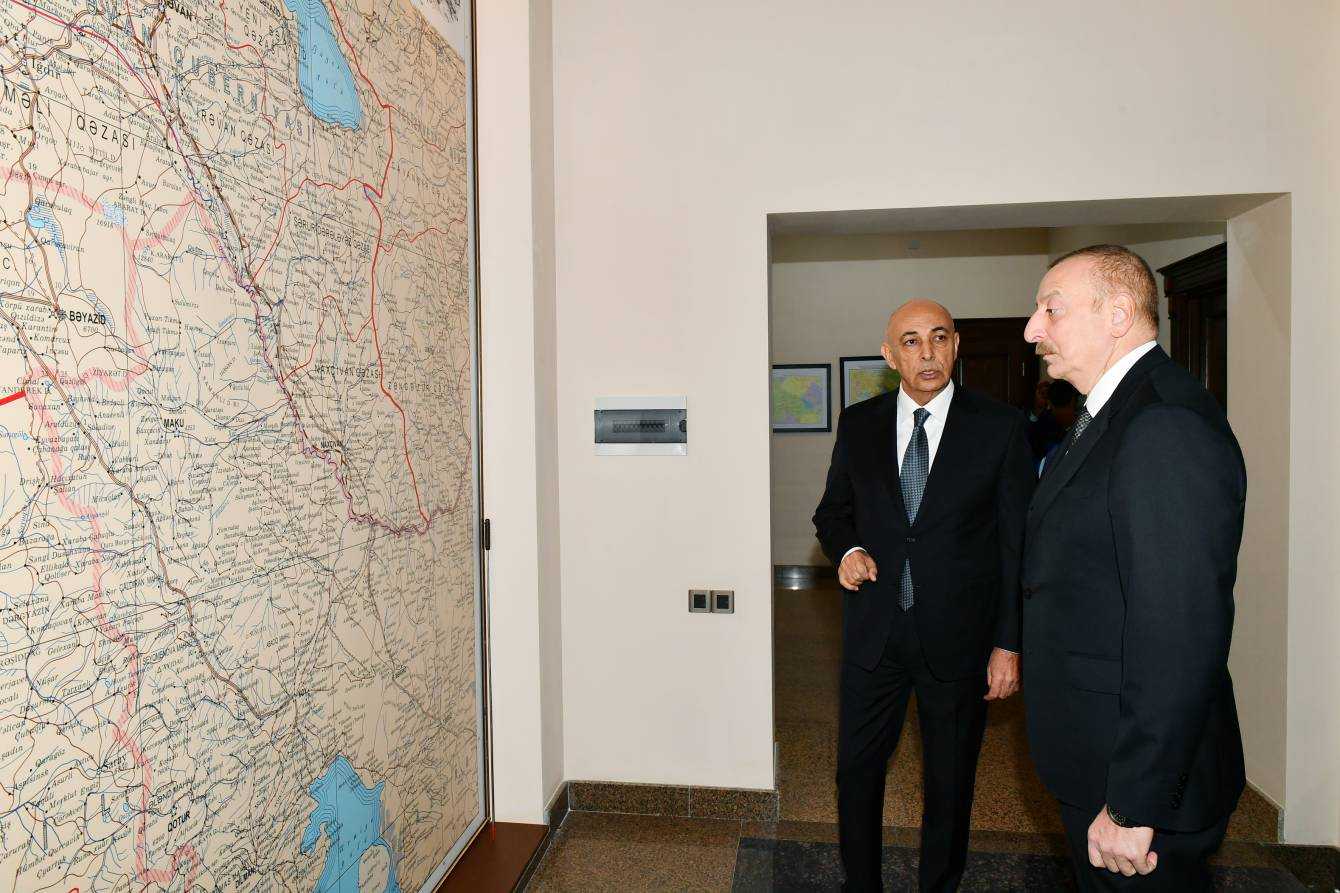
Azerbaijan’s Defence Minister Zakir Hasanov has instructed the country’s armed forces to stay on ‘high alert’ to prevent ‘provocations of the revanchist forces’, as peace talks with Armenia continue to flounder.
Hasanov held a meeting with high-ranking military officials on 12 October, during which he instructed troops ‘to maintain the combat capability at a constant high level, increase vigilance, as well as to be ready to take preventive measures against all possible provocations of revanchist forces on the conditional border’.
This instruction came as Azerbaijan doubled down on its demand for the removal of the EU Mission in Armenia (EUMA), a civilian monitoring mission deployed to the Armenian side of the border with Azerbaijan. Last week state-affiliated media accused the EUMA of ‘gathering intelligence’ and of making ‘preparations for provocations’.
It also comes as the peace process appears to have reached a deadlock, after Azerbaijan rejected Armenia’s offer to sign an interim treaty on articles both sides had already agreed on, despite having proposed to do so earlier this year.
[Read more: Azerbaijan refuses to sign peace treaty based on already agreed points]
On Monday evening, a spokesperson for Armenia’s Parliamentary Speaker announced that Azerbaijan had pulled out of an agreement to meet ‘at the last moment’.
Alen Simonyan was due to meet his Azerbaijani counterpart, Sahiba Gafarova, this week on the sidelines of the Inter-Parliamentary Union Assembly in Geneva.
The two have previously held two meetings.
Last week, Hasanov referred to recent statements by Azerbaijani President Ilham Aliyev that ‘the number one priority is to increase our military strength’, and that ‘vengeful forces are raising their head in Armenia’.
During his speech Aliyev also blamed ‘Western states’ for arming Armenia, adding that they should ‘bear in mind that they will be directly responsible for all future developments’.
The reopening of transport links
One key point of contention continues to be a proposed route through Armenia linking the Azerbaijani exclave of Nakhchivan with the rest of Azerbaijan.
Article 9 of the ceasefire agreement that brought an end to the Second Nagorno-Karabakh War states that Armenia should ‘guarantee the safety’ of the route while control of it would be exercised by Russian border guards.
Azerbaijan has disregarded key parts of the agreement, by first placing the Lachin Corridor that connected Armenia with Nagorno-Karabakh under blockade and then launching a military assault on the region in 2023, leading to the exodus of the Armenian population. The Russian peacekeeping mission that was deployed to Nagorno-Karabakh under the agreement has also been withdrawn.
[Read more: The ‘Black Garden’ becomes ‘a black corner’ for Nagorno-Karabakh’s Armenians]
While Azerbaijani officials have toned down their demands for what they term the ‘Zangezur corridor’ in recent months, they have in the past threatened to establish the corridor by force.
Speaking at a ‘Crossroads of Peace’ conference in Yerevan on 12 October, Armenian Prime Minister Nikol Pashinyan said it was ‘unacceptable’ to focus on Article 9 of the agreement while other articles remained unfulfilled.
He said Azerbaijan wanted Armenia’s roads ‘to be usable for itself, but at the same time, for Armenia ‘to continue being blockaded’.
He repeated his suggestion that the two countries open their borders to each other with any route within Armenia remaining under Armenian control. He added that Armenia was prepared to implement ‘certain simplifications of passage and control for this connection’. He suggested that opening the borders could potentially bring in ‘billions of dollars’ to Armenia, and that this could be Azerbaijan’s concern.
Azerbaijan’s Foreign Ministry’s spokesperson, Aykhan Hajizada, responded by urging the Armenian authorities to ‘refrain from making statements exceeding all boundaries [and] distorting the realities’.
Hajizada accused Armenia of not fulfilling the 2020 agreement, and censured ‘the negligence of the Armenian leadership for the obligations it has undertaken’.
He also responded to Armenia’s claim that Azerbaijan continues to hold Armenian prisoners of war in defiance of the agreement, stating that Azerbaijan ‘does not have any obligation to release war criminals or representatives of the separatist junta regime of Armenian origin’.
Armenia’s Foreign Ministry responded on Monday stating that it was ‘clear’ that Armenia would open transport links with Azerbaijan ‘within the framework of its jurisdiction and sovereignty’.
Ministry spokesperson Ani Badalyan said the Armenian government had already offered to start the process of opening up the borders.
Russia has also increasingly raised the issue of restoring economic and transport links. On 8 October, Deputy Prime Minister Alexei Overchuk complained that for ‘at least a year and a half’ there had been ‘almost no movement’ on the issue.
He added that unblocking economic and transport corridors in the region ‘is only possible with Russia’s participation’.
Since the November 2020 agreement was brokered by Russia, relations between Moscow and Yerevan have declined dramatically. As a result, the Armenian government has increasingly turned away from Russia and towards the West for both its security needs as well as the mediation of the conflict with Azerbaijan.
During his meeting with Russian President Vladimir Putin in early October, Pashinyan expressed concern about ‘the language and terminology used by certain Russian officials regarding regional issues’.
In August, Russia’s Foreign Minister Sergei Lavrov accused Armenia of ‘sabotaging’ agreements to open transit links in its southern regions.









